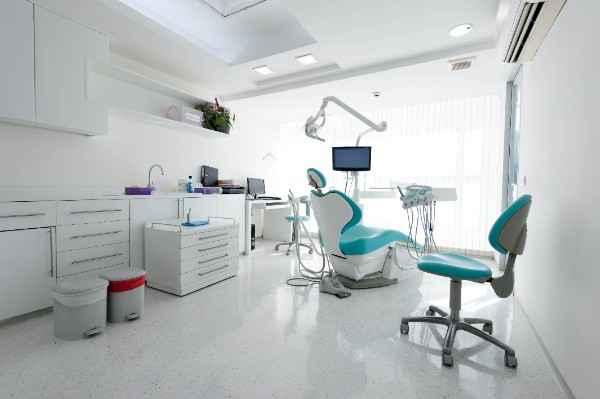When Tooth Pain Becomes Too Much — Find Relief in Wrexham

There’s only so much discomfort one can tolerate, especially when it comes to tooth pain. Whether it starts as a nagging twinge or suddenly strikes like lightning, pain in your teeth or gums can disrupt daily life and affect everything from sleep to eating. But if you’re in Wrexham, help is closer than you think. Understanding when to act can make all the difference. This guide will walk you through when tooth pain qualifies as an emergency, what urgent dental services are available locally, how a hygienist in Wrexham can help you stay ahead of problems, and what simple steps you can take to prevent future dental pain from derailing your day—or your smile.
Is It Just a Toothache — or a Dental Emergency?
Tooth pain is common, but that doesn’t mean it should be ignored. Sometimes, it’s a minor issue like food lodged between teeth. Other times, it could point to an abscess, cracked tooth, or gum infection—all of which need prompt treatment.

Signs Your Tooth Pain Is an Emergency:
- Severe, throbbing pain that doesn’t go away
- Swelling in your face or gums
- Fever alongside pain
- Pain after trauma or an accident
- Bleeding or pus near the affected tooth
- Trouble swallowing or breathing
If any of these symptoms sound familiar, you likely need an emergency dentist in Wrexham. Delaying treatment can worsen the condition and lead to more complex (and costly) care down the road.
Causes of Intense Tooth Pain
Let’s take a quick look at what might be causing the agony:
|
Possible Cause |
Description |
|
Tooth decay |
Bacteria erode enamel, exposing sensitive nerves |
|
Abscessed tooth |
Infection inside the tooth or gum causing intense pain and swelling |
|
Cracked or fractured tooth |
Pain when chewing or exposed to hot/cold temperatures |
|
Gum disease |
Inflamed or receding gums causing discomfort and sensitivity |
|
Wisdom tooth impaction |
Common in younger adults, leads to jaw and tooth pain |
|
Loose or damaged filling |
Exposed nerves, causing sensitivity to food and air |
What Can an Emergency Dentist in Wrexham Do?
When a dental emergency strikes, prompt care is crucial. An emergency dentist in Wrexham will begin by assessing the issue—often using X-rays or a physical examination to determine the cause of your discomfort. Depending on the diagnosis, they may: drain an abscess to relieve pressure and infection, carry out root canal treatment to save a damaged tooth, extract a severely broken or decayed tooth, refit or replace lost crowns or fillings, or prescribe antibiotics to manage infections. Many dental practices in Wrexham offer same-day emergency appointments, so don’t delay—early treatment can ease your pain and prevent further complications.
Why You Shouldn’t Ignore Tooth Pain
Tooth pain is more than just an inconvenience—it’s your body’s warning sign that something isn’t right. Ignoring it can allow underlying issues to worsen, leading to serious consequences like infections that spread to the jaw or bloodstream, permanent tooth loss, and damage to nearby teeth and bone. Delaying treatment often results in more complex procedures and higher costs down the line. Even if the pain fades temporarily, it doesn’t mean the problem has resolved. Always get persistent or recurring tooth pain checked—early intervention is key to protecting your oral and overall health.
Prevention: The Role of a Hygienist in Wrexham
Here’s the good news: many dental emergencies can be prevented. Regular check-ups and hygiene appointments keep your mouth healthy and help spot problems before they escalate.
A hygienist in Wrexham can:
- Remove plaque and tartar buildup
- Offer personalised brushing and flossing tips
- Apply protective treatments like fluoride varnish
- Spot early signs of decay or gum disease
Benefits of Seeing a Hygienist:
- Fresher breath
- Healthier gums
- Reduced risk of emergency dental visits
- Early detection of issues that might be missed in daily brushing
Regular hygiene appointments should be part of your dental routine—not just an afterthought when pain strikes.
What to Do While Waiting for Emergency Treatment
If you're in pain and waiting to see an emergency dentist in Wrexham, there are a few things you can do to ease discomfort in the meantime. Rinse your mouth gently with warm salty water to help reduce bacteria and soothe irritated gums. Applying a cold compress to the outside of your cheek can help minimise swelling and numb the area. Over-the-counter pain relief such as paracetamol or ibuprofen can be effective—but avoid placing aspirin directly on the gum as it can cause burns. Try to avoid hot, cold, or sugary foods, and stay upright as much as possible to reduce pressure and throbbing. Most importantly, resist the urge to fix anything yourself—DIY remedies often make the situation worse.
When to Call a Hygienist vs Emergency Dentist
|
Situation |
See a Hygienist |
See an Emergency Dentist |
|
Routine cleaning and check-up |
✔ |
✘ |
|
Gums bleed slightly when brushing |
✔ |
✘ (unless severe) |
|
Knocked-out tooth |
✘ |
✔ |
|
Sudden, intense tooth pain |
✘ |
✔ |
|
Bad breath despite brushing |
✔ |
✘ |
|
Swollen jaw or face |
✘ |
✔ |
|
Loose crown or filling |
✘ |
✔ |
How Often Should You See a Hygienist in Wrexham?
For most people, seeing a hygienist in Wrexham every six months is a good rule of thumb to maintain healthy teeth and gums. However, certain factors may require more frequent visits. If you smoke, have diabetes, wear braces, or have a history of gum disease, your oral health may need closer monitoring. These conditions can increase your risk of plaque build-up, gum inflammation, and other complications. A hygienist can provide tailored advice and deep cleaning to keep issues at bay. Ultimately, your dentist or hygienist will recommend a schedule that best suits your personal needs and helps you avoid unexpected dental problems down the line.
Don’t Let Dental Anxiety Delay Your Treatment
Many people hesitate to visit a dentist due to fear or anxiety, even when they’re in significant pain. But modern dental care in Wrexham is more patient-friendly than ever. Local emergency dentists in Wrexham are trained to offer gentle, reassuring treatment with options like sedation, numbing gels, and clear explanations at every step. If nerves are holding you back, talk to the practice beforehand—most clinics are happy to make accommodations to help you feel calm and supported.
Quick Tips for At-Home Dental Care Between Visits
While professional dental care is essential, maintaining strong daily habits at home can greatly reduce your chances of experiencing tooth pain or gum issues. In addition to scheduling regular check-ups with a hygienist in Wrexham, it’s important to brush your teeth twice a day using fluoride toothpaste to protect against decay. Flossing daily helps remove plaque and food particles that your toothbrush might miss. Limiting sugary snacks and drinks also keeps harmful bacteria at bay. If you grind your teeth at night, wearing a mouthguard can prevent unnecessary wear and discomfort. And don’t forget to replace your toothbrush every three months. These simple actions can go a long way in preserving a healthy, pain-free smile.

Conclusion: Relief Is Just a Call Away
Tooth pain, whether sudden and sharp or slow and persistent, should never be brushed aside. Seeking prompt attention from an emergency dentist in Wrexham can ease your discomfort and stop minor issues from becoming major ones. At the same time, regular care from a hygienist in Wrexham plays a crucial role in keeping your mouth healthy and pain-free. If you're dealing with discomfort or simply due a check-up, don't delay. The compassionate team at EDA Group is ready to restore your smile—and your peace of mind—with expert care.



